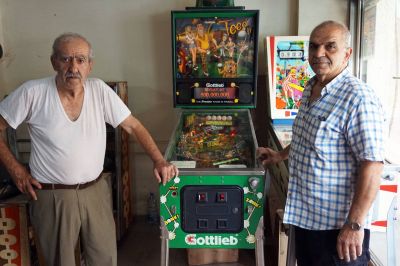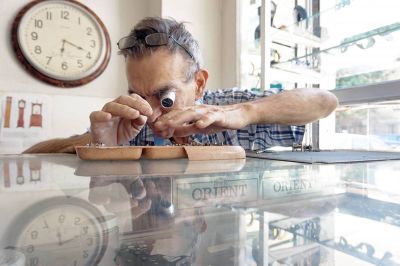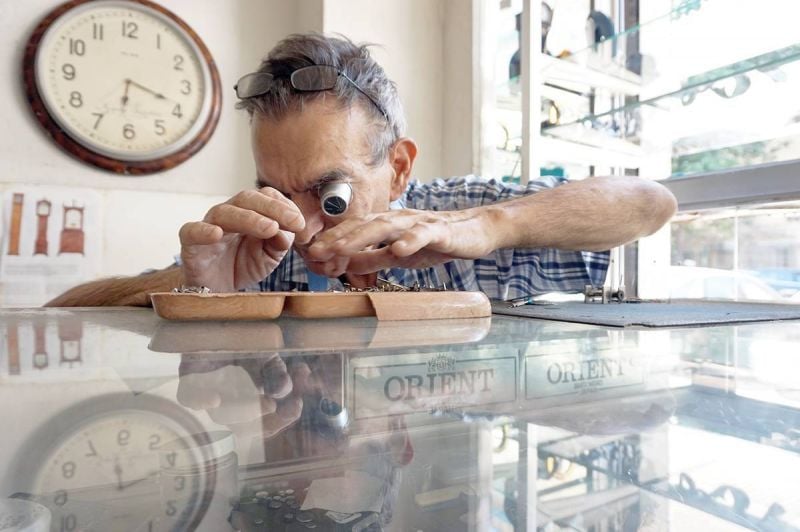
No problem escapes the diagnosis of watchmaker Setrak Bozoian. (Carla Henoud/L'Orient-Le Jour)
His large hands are blackened by tiny screws that must be put in precisely the right place, his eyes are sharp, his patience is unlimited as he tirelessly manages to pierce the mysteries of clocks and watches.
No mechanism can resist Setrak Bozoian's knowledge and no problem escapes his diagnosis.
He can penetrate the heart of each piece—listening first to its breath, slow, timid or fast — and, like a first-aid worker or a surgeon, give it a second chance at a new life.
This horologist, 67, started out very young in a world that can seem so abstract and so methodical at the same time. Poetic yet technical. Modern yet nostalgic.
His father was a hairdresser, but it was his grandfather who passed on to him his passion for these strange and beautiful machines that give rhythm and account to our lives.
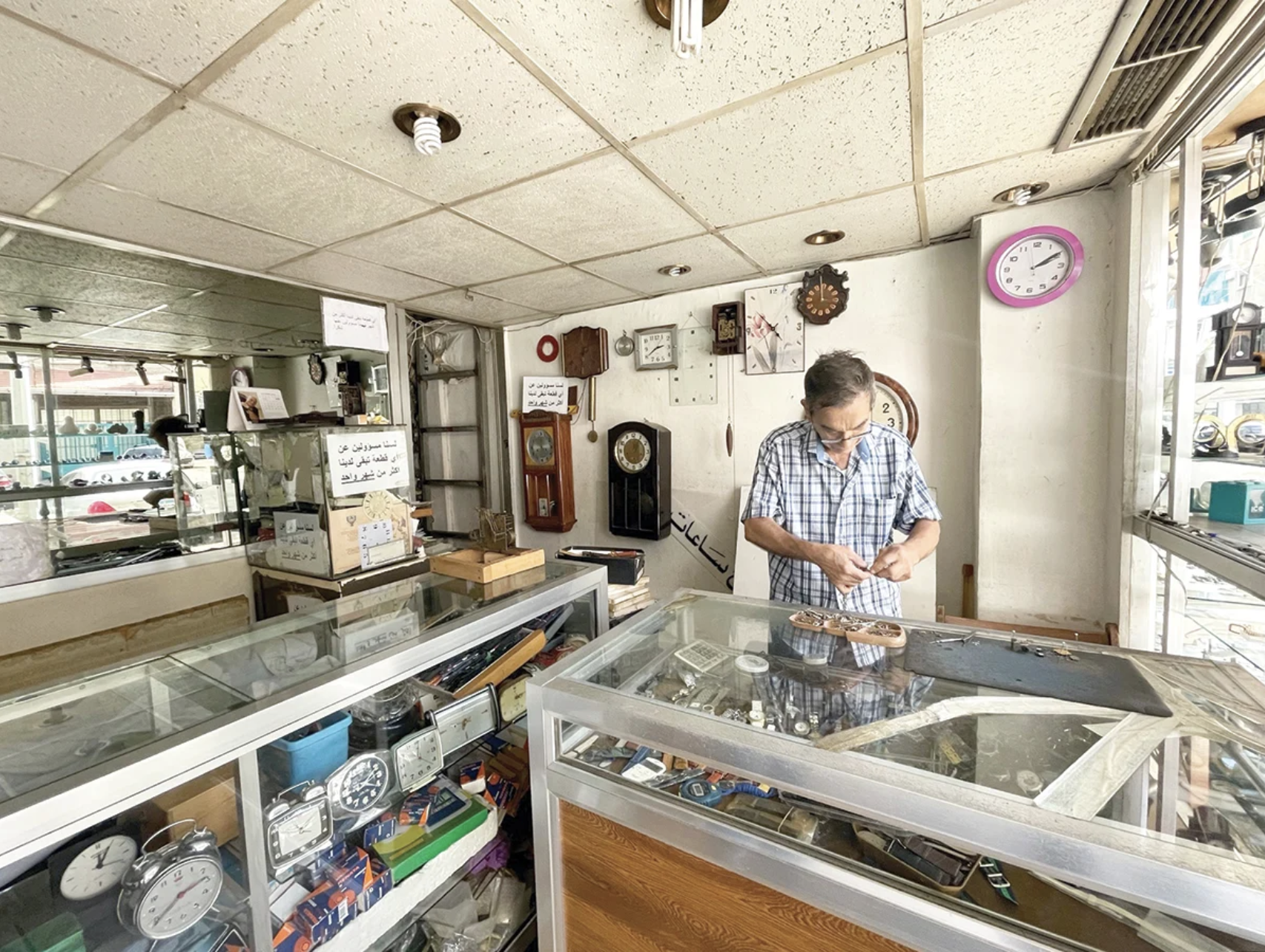 Setrak Bozoian in his shop in Bouchrieh. (Carla Henoud/L'Orient-Le Jour)
Setrak Bozoian in his shop in Bouchrieh. (Carla Henoud/L'Orient-Le Jour)
Bozoian knows them all: Cuckoo clocks of the 1930s, manual watches, alarm clocks of the 1960s, automatic and other electronic Casio of the 1970s.
His store in Bouchrieh feels like a museum. A first glance at this exiguous place — a little disordered, rocked by the incessant ticking of the hours — and one's eye settles on clocks of another time hung on the wall. Others, more discreet, are hidden under a window a little dusty.
“Look at this piece,” said the collector, proudly pointing to an alarm clock. “This cuckoo clock from the 1930s is an original, this one that announces each hour with a Hail Mary and this one from 1947.”
“I have many others, centenarians, very precious and which belonged to my grandfather. I prefer to hide them in a safe place. During the armed incidents of 1998, all the stores in the area were robbed.”
In search of lost time
Bozoian started in the delicate and cerebral profession of watchmaking while he was still at school, during summer vacations.
Forced to drop out of school to help his family, he worked with a horologist friend before he was hired by “Jovial, in Azariyeh,” he said proudly, looking a little sad. “I know every corner of the city center and Bab Idriss.”
The Swiss brand was then one of the most important in Lebanon. He remained there until it closed its Lebanese offices in the 1990s.
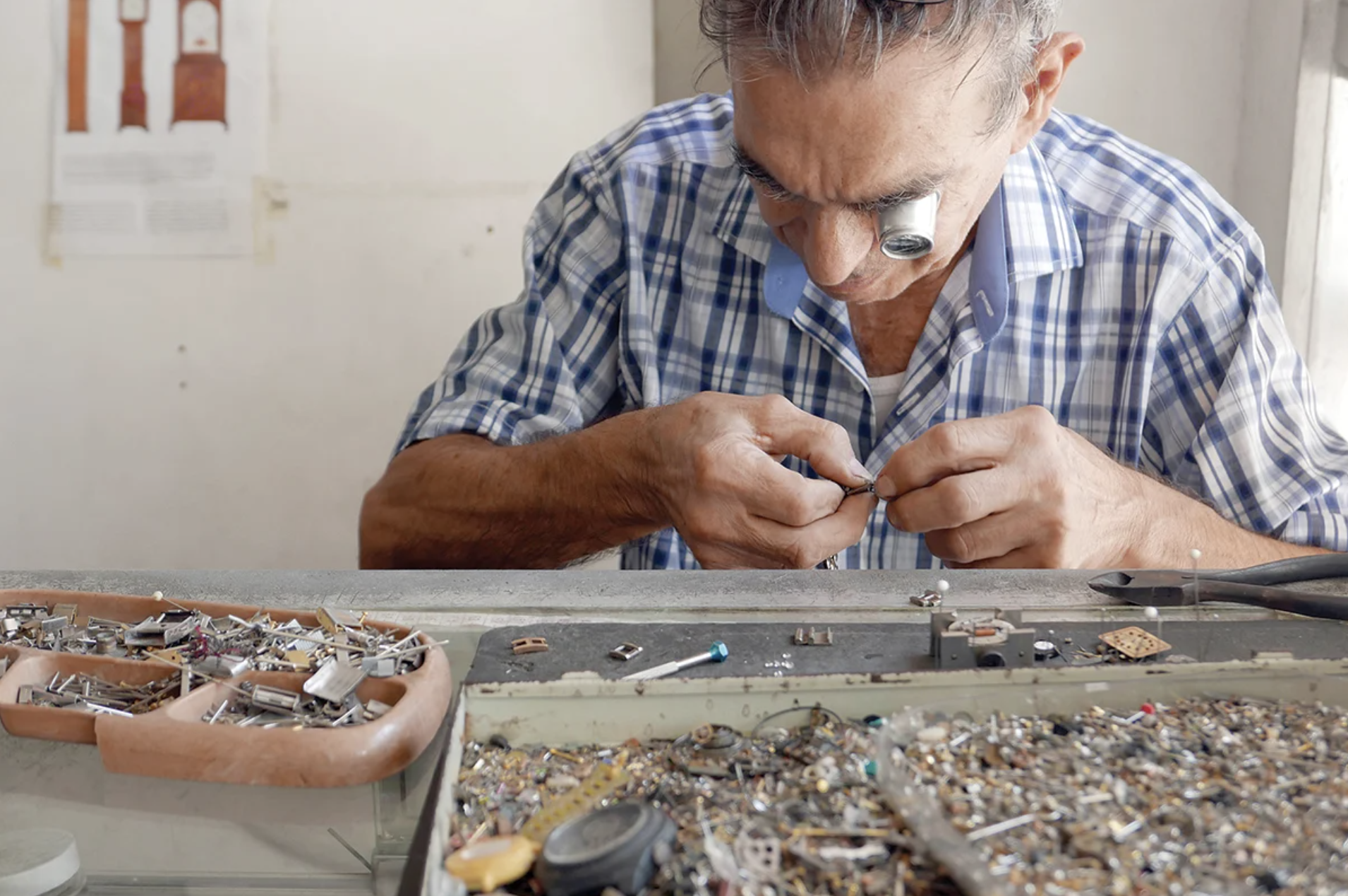 Bozoian learned his passion for watchmaking and repair from his grandfather. (Carla Henoud/L'Orient-Le Jour)
Bozoian learned his passion for watchmaking and repair from his grandfather. (Carla Henoud/L'Orient-Le Jour)
“I assembled more than 2,000 pieces, I repaired even more,” Bozoian said. “They trusted me... I knew Tammam Salam, Saeb Salam and many others who repaired their watches with us.”
In 1995, Bozoian moved to Bouchrieh. The business, whether in sales or repairs, was doing well.
“We could not complain. Up until 2012. The demand has since become more scarce. The volume of work gradually and significantly decreased. Today, repairs bring in the most work. People can no longer afford to buy new watches. Yet I have some for $10,” he said.
'Ma'alim'
“At 23, I could work non-stop, 24 hours a day. I like manual work. I am at work every day, but at my age and under the current conditions, things are becoming more and more difficult for me. When my head is full, I can't concentrate anymore, I have to stop for a while before I start again.”
“Marhaba ma'alim,” a customer said, interrupting our conversation, impatiently. “How is it?”
Bozoian's eye lights up.
“Look, I did my best and it's as good as new.”
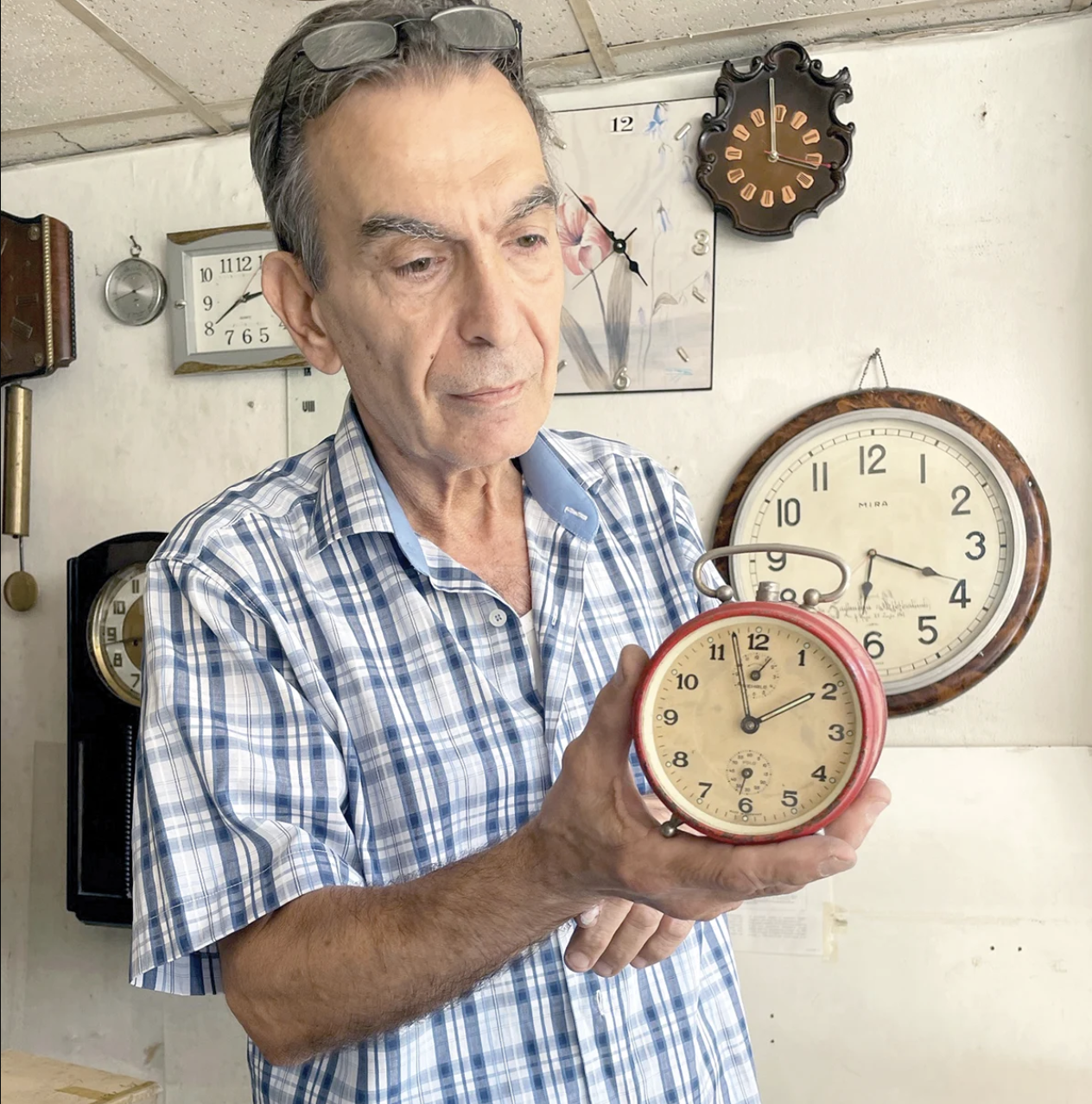 Bozoian said most of today's business is in repairs. (Carla Henoud/L'Orient-Le Jour)
Bozoian said most of today's business is in repairs. (Carla Henoud/L'Orient-Le Jour)
A second regular comes in, explaining that her watch has “given up the ghost.”
“Let me see if I can do something.” Bozoian turns into a sorcerer's apprentice, a wizard of Oz, Edward with silver hands.
He puts on his tarnished magnifying glass and, with a wise eye, dives into the sides of the watch. In front of him, a tray full of small steel screws waiting to be used, next to the screwdrivers and other tweezers.
“Easy...I can fix it for you.”
“Shall I pay you an advance?” ask the customer, who seems to be a regular.
“No... See you on Friday, Inshallah.”
Bozoian did not pass on this profession to his two children, both of whom are still students.
Forced to work — “whether I want to or not” — as well as his wife, to make ends meet, he said he is not “responsible for any piece that stays with us for more than a month,” but takes care of each watch left with him for a day, a month or a hundred years.
An hour later, one of the clocks reminded us that it was time to leave. We had not seen the time pass, and yet...
To reach Setrak Bozoian:
+961 3 256 909
Find these portraits on the Instagram page @thereadyhand.
This article was originally published in French in L'Orient-Le Jour. Translation by Joelle El Khoury.
